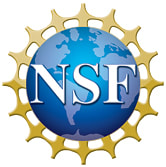Reinventing the Instructional and Departmental Enterprise (RIDE) to Advance the Professional Formation of Electrical and Computer Engineers |
About |
This funding opportunity from the National Science Foundation enables engineering and computer science departments to lead the nation by successfully achieving significant sustainable changes necessary to overcome longstanding issues in their undergraduate programs and educate inclusive communities of engineering and computer science students prepared to solve 21st-century challenges. Even as demographic and regional socioeconomic factors affect engineering and computer science departments in unique ways, there are certain tenets of sustainable change that are common across institutions. Departmental cultural barriers to change and to inclusion of students and faculty from different backgrounds must be identified and addressed. Finally, coherent technical and professional threads must be developed and woven across the four years, especially (1) in the core technical courses of the middle two years, (2) in internship opportunities in the private and public sectors, and (3) in research opportunities with faculty. These and other threads aim to ensure that students develop deep knowledge in their discipline more effectively and meaningfully, while at the same time building their capacities for 21st century and “T-shaped” professional skills, including design, leadership, communication, understanding historical and contemporary social contexts, lifelong learning, professional ethical responsibility, creativity, entrepreneurship, and multidisciplinary teamwork. The research on departmental change that results from these projects should inform change more broadly across the STEM disciplines. (Adapted from NSF IUSE/PFE: RED page, https://www.nsf.gov/funding/pgm_summ.jsp?pims_id=505105)
|
At Texas A&M University Commerce |
Through this project, the Iowa State ECE department is undergoing a transformation to a more agile, less traditional organization able to respond to industry and society needs and sustain innovations. This transformation is being driven by the project's novel cross-functional, collaborative instructional model for course design and professional formation, called X-teams. X-teams are reshaping the core technical ECE curricula in the middle years through pedagogical approaches that (a) promote design thinking, systems thinking, professional skills such as leadership, and inclusion; (b) contextualize course concepts; and (c) stimulate creative, socio-technical-minded development of ECE technologies for future smart systems. X-teams are also serving as change agents for the rest of the department through communities of practice referred to as Y-circles. Y-circles, comprised of X-team members, faculty, staff, and undergraduate and graduate students in the department, are contributing to an organizational culture that fosters and sustains innovations in engineering education through an agile framework that blends several documented change theories, including collaborative transformation, crucial conversations, and essential tension. Y-circles are engaging in a process of discovery and inquiry to bridge the engineering education research-to-practice gap. Research studies are being conducted to answer questions to understand (1) how educators involved in X-teams use design thinking to create new pedagogical solutions; (2) how professional formation pedagogy in the middle years affects student professional ECE identity development as design thinkers; (3) how ECE students overcome barriers, make choices, and persist along their educational and career paths in the middle years; and (4) the effects of department structures, policies, and procedures on faculty attitudes, motivation and actions. These studies are informing and improving project activities, advancing knowledge, and supporting adaptation by others. Along with researchers at Iowa State, the Texas A&M University RRG leads a qualitative case study to investigate undergraduate student engineering identity development in Iowa State University’s Electrical and Computer Engineering Department.
|
Partners
Any opinions, findings, and conclusions or recommendations expressed in this material are those of the author(s) and do not necessarily reflect the views of the National Science Foundation.


